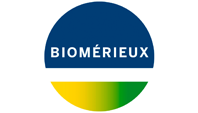AdvanDx and bioMérieux Partner to Provide Rapid Results for Bloodstream Infections
22 Mai, 2007In order to provide faster identification of bloodstream pathogens, bioMérieux (Euronext: BIM) has agreed with AdvanDx, Inc. to sign an exclusive distribution agreement for the United States for AdvanDx’s PNA FISH™ rapid diagnostic tests. These tests will be displayed at bioMérieux’s booth from the opening of the American Society of Microbiology (ASM) in Toronto on May 22.
AdvanDx, Inc.’s molecular-based tests provide rapid species identification of bacteria and yeast from positive blood cultures in less than three hours. This allows clinicians to make faster and more relevant therapy decisions that can improve antibiotic management, reduce hospital mortality, and reduce costs associated with bloodstream infections.
“We are excited to partner with bioMérieux to provide faster diagnosis of these critical diseases,” said Thais T. Johansen, President and CEO of AdvanDx. “The industry-leading technology behind our PNA FISH tests offers an easy to implement solution for rapid identification of a broad range of bloodstream pathogens. We chose bioMérieux to distribute our PNA FISH tests because they share our values to provide cutting-edge, life-saving technology and superior customer service.”
Stéphane Bancel, Chief Executive Officer of bioMérieux, said: “The agreement perfectly complements our current suite of automated diagnostic solutions for hospital laboratories in the U.S. The combination of AdvanDx, Inc.’s PNA FISH™ technology and bioMérieux’s BacT/ALERT® range will provide clinicians with quicker and more accurate results, for an earlier treatment of septic patients”.
Based on the peptide nucleic acid fluorescence in situ hybridization (PNA FISH) technology, tests which are part of this agreement enable rapid identification of Staphylococcus aureus, Candida albicans, and Enterococcus faecalis and other species from positive blood cultures.
A recent study performed by the University of Maryland Medical Center using S. aureus PNA FISH concluded that there was a significant reduction in median length of hospital stay, from six to four days. Additionally, there was a trend toward less vancomycin usage with a decrease in associated hospital costs of ~$4,000 per patient (I). Each year, more than 2 million discharge diagnoses include septicemia, bloodstream infections that can lead to severe sepsis and result in significant hospital costs in the US (II). Rapid results from the microbiology lab are therefore critical to support appropriate therapy (III,IV).
I: Forrest et al. J Antimicrobial Chemotherapy. 2006 Jul;58(1):154-8
II: MMWR. 1990 Jan; 39(2):31-34
III: Wenzel RP, et al. Emerg. Inf. Dis. 2001; 7:174-177
IV: Surdulescu S, et al. Clin. Perform. Qual. Health Care. 1998 Apr-Jun; 6(2):60-2
About severe bacterial infections and Sepsis
Antibiotic management is crucial in sepsis (septicemia plus the systemic inflammatory response).
Every year, severe sepsis strikes an estimated 750,000 people in the United States, 215,000 of whom die (1). The incidence of severe sepsis is expected to rise to 1 million by the end of the decade as the population ages. Sepsis is the leading cause of death in the non-coronary ICU (1,2). Twenty-five percent of deaths in sepsis are directly attributable to complications of septicemia, including incorrect identification of or failure to identify pathogens (3).
1: Angus DC, Linde-Zwirble WT, Lidicker J, et al. Epidemiology of severe sepsis in the United States: analysis of incidence, outcome, and associated costs of care. Crit Care Med 2001; 29: 1303-10.
2: Vincent JL, Sakr Y, Sprung CL, et al. Sepsis in European intensive care units: results of the SOAP study. Crit Care Med 2006; 34: 344-53.
3: Rangel-Frausto, M. and Wenzel, R., “Epidemiology and Natural History of Bacterial Sepsis”, pp 27-34 in Sepsis and Multiorgan Failure, Williams and Wilkins, 1997.
About PNA FISH™
PNA FISH is a qualitative nucleic acid hybridization assay intended for rapid identification of bacteria and yeast species from positive blood cultures. The 2.5 hours fluorescence in situ hybridization (FISH) assay uses fluorescence-labeled peptide nucleic acid (PNA) probes that target the species-specific ribosomal RNA (rRNA) in bacteria and yeast. Results are visualized using fluorescence microscopy. Fluorescing cells indicate the target species, while no fluorescence indicates another species is present in the positive blood culture.
About AdvanDx, Inc.
AdvanDx, Inc. develops and markets in vitro diagnostic kits based on its PNA FISH™ and EVIGENE™ technology platforms to aid the diagnosis and prevention of infectious diseases. The PNA FISH and EVIGENE product lines provide rapid identification results for bacteria and yeast to support appropriate antibiotic therapy and overall patient care. PNA FISH is available for in vitro diagnostic use (IVD) in the United States, Canada and Europe while EVIGENE is available for research use only (RUO) in the United States and for in vitro diagnostic use in Europe. AdvanDx has established R&D facilities both in the United States and Denmark with sales and marketing capabilities located throughout the United States and Europe. http://www.advandx.com/
About bioMérieux
Advancing Diagnostics to Improve Public Health
A world leader in the field of in vitro diagnostics for over 40 years, bioMérieux is present in more than 150 countries through 35 subsidiaries and a large network of distributors. In 2006, revenues reached €1.037 billion with 83% of sales outside of France.
bioMérieux provides diagnostic solutions (reagents, instruments, software), which determine the source of disease and contamination to improve patient health and ensure consumer safety. Our products are used for diagnosing infectious diseases and providing high medical value results for cardiovascular emergencies and cancer screening and monitoring. They are also used for detecting microorganisms in agri-food, pharmaceutical and cosmetic products. bioMérieux is listed on Eurolist by Euronext. For more information, visit http://www.biomerieux.com/.

